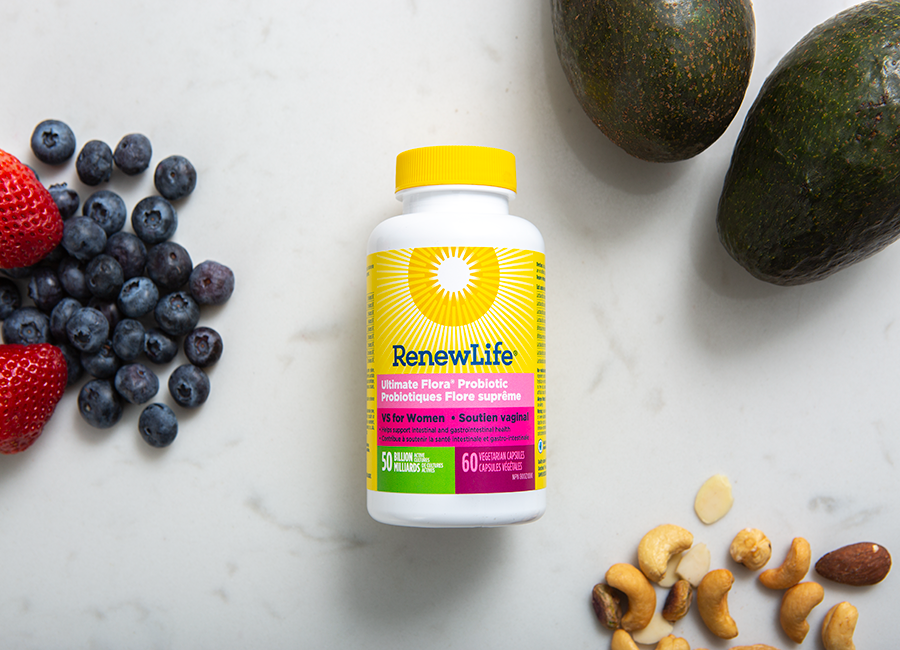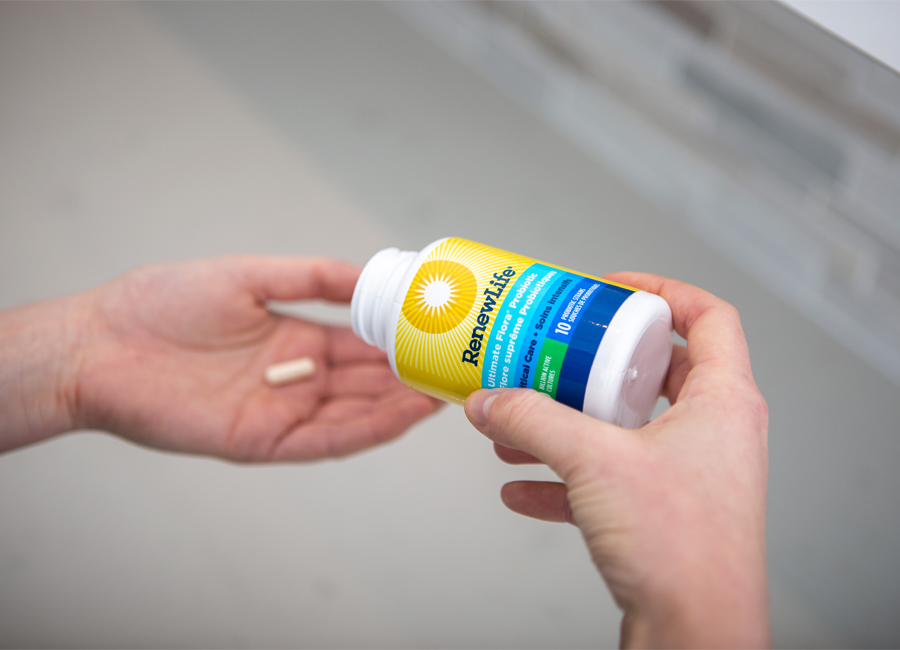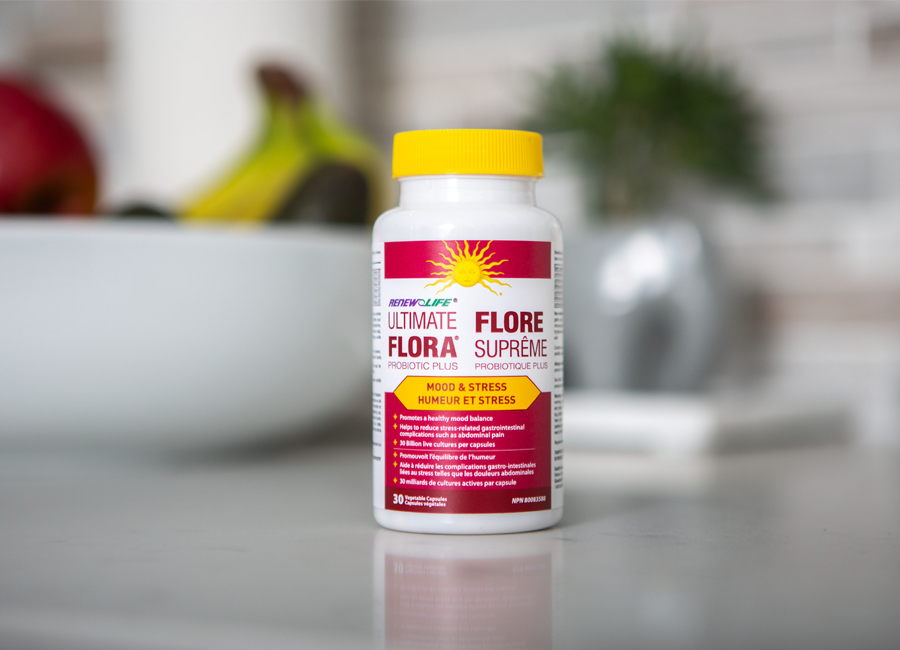Why Your Gut Health Is so Much More Important Than You Think

SPONSORED CONTENT
While digestion is important, probiotic research is now showing that the health of your gut is connected to sleep, skin and even your mood.
Probiotics can be an essential support to gut health, which can easily become unbalanced thanks to diet, antibiotics and stress. But when we talk about the microbiome of the gut, we’re talking about so much more than just your stomach and digestion. The truth is, the balance of the trillions of bacteria and microorganisms in our gut can influence our skin, mood and brain too.
While it is important to eat a balanced diet and the microbes you get from food may have some health benefits, opting for a probiotic supplement is a great way to tailor your gut health to specific health concerns. “With food we don’t always know which types of bacteria we’re getting,” says Dr. Sara Celik, naturopathic doctor. By adding a probiotic supplement to your routine, you not only know what strains you’re getting, it can be a lot easier to get a lot more of them—up to 100 billion active cultures per serving. To put that into perspective, with a cup of yogurt you’re likely to get only one billion active cultures per serving, and that can come with unwanted calories!
Digestion
“Digestion is one of the main reasons why people will look for a probiotic,” says Dr. Celik. If you suffer from occasional bloating, constipation, or diarrhea—these are all obvious reasons why you might seek one out. This is largely because probiotics can help us absorb nutrients from our food. “With better absorption of nutrients from our food and better breakdown of our food, a probiotic can improve a number of different areas of our health.” Here are a few beyond digestion to consider.
Skin
The skin and the gut are closely related—just as we have bacteria in our gut we need to balance, so too does our skin. But the main way that probiotics can help clear complexions is thanks to its anti-inflammatory properties. “Probiotics reduce inflammation,” says Dr. Celik, “and if we look at skin conditions like psoriasis, eczema or rosacea, these are inflammatory skin conditions.”
Alzheimer’s Disease
Although the research is still in its infancy, there have been early links connecting Alzheimer’s disease and the gut. People who have healthy gut flora and a healthy balance of bacteria are protecting the lining of the intestines. “People with Alzheimer’s Disease have different gut flora than healthy individuals,” says Dr. Celik. “And because the lining of the intestines is damaged, it allows amyloid plaques to enter the bloodstream, make their way up to the brain, cross over the blood-brain barrier and enter the brain.” Alzheimer’s Disease is an accumulation of amyloid plaques between the nerve cells and the brain. Though there’s plenty of research to be done, what we do know is that balancing gut flora can lead to the prevention of damage to the intestinal wall so that those plaques don’t make it to the bloodstream.
Mood and Stress
Stress can affect our gut, but the reverse is also true. “If there’s an imbalance in intestinal flora or an imbalance in gut flora, we do see increased cases of mood and stress.” Luckily, there are a number of probiotic strains that have shown to combat poor mood, and even stress.
Sleep
A lack of sleep isn’t good for your health, and that includes the health of your gut. A lack of quality sleep specifically affects the diversity of your gut bacteria. “Certain species of bacteria can decrease in the gut if people are suffering from insomnia or have bad sleep patterns,” says Dr. Celik. Studies have found evidence showing that sleep regulation and mental health are affected by the gut microbiome.
As we move to a more holistic approach to our health, the health of your gut in a no-brainer. “People are really starting to understand that for a healthy life, you need a healthy gut.” Taking a daily probiotic supplement ensures you have healthy and diverse gut bacteria, which is getting what it needs to thrive—so you can thrive too.
Individual experience will be different from person to person and results may vary. Consult a health care practitioner if symptoms persist or worsen.
Pricing
Renew Life Ultimate Flora VS 50 Billion Active Cultures, 30ct $36.99
Renew Life Ultimate Flora Critical Care 50 Billion Active Cultures, 30ct $36.99
Renew Life Ultimate Flora Mood and Stress 30 Billion Active Cultures, 30ct $32.99
For more information, please visit www.renewlife.ca